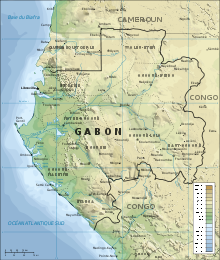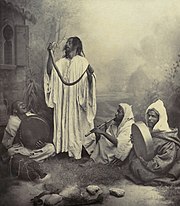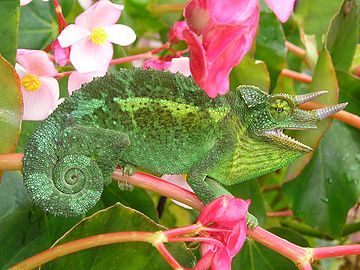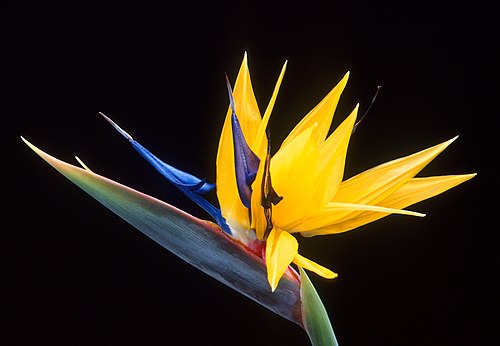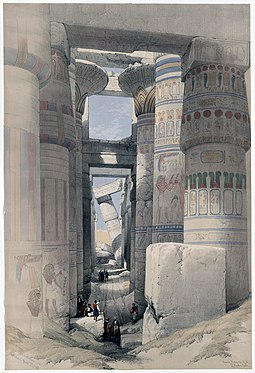Portal:Africa



Africa is the world's second-largest and second-most populous continent after Asia. At about 30.3 million km2 (11.7 million square miles) including adjacent islands, it covers 20% of Earth's land area and 6% of its total surface area. With nearly 1.4 billion people as of 2021, it accounts for about 18% of the world's human population. Africa's population is the youngest among all the continents; the median age in 2012 was 19.7, when the worldwide median age was 30.4. Based on 2024 projections, Africa's population will reach 3.8 billion people by 2099. Africa is the least wealthy inhabited continent per capita and second-least wealthy by total wealth, ahead of Oceania. Scholars have attributed this to different factors including geography, climate, corruption, colonialism, the Cold War, and neocolonialism. Despite this low concentration of wealth, recent economic expansion and a large and young population make Africa an important economic market in the broader global context. Africa has a large quantity of natural resources and food resources, including diamonds, sugar, salt, gold, iron, cobalt, uranium, copper, bauxite, silver, petroleum, natural gas, cocoa beans, and.
Africa straddles the equator and the prime meridian. It is the only continent to stretch from the northern temperate to the southern temperate zones. The majority of the continent and its countries are in the Northern Hemisphere, with a substantial portion and a number of countries in the Southern Hemisphere. Most of the continent lies in the tropics, except for a large part of Western Sahara, Algeria, Libya and Egypt, the northern tip of Mauritania, and the entire territories of Morocco and Tunisia, which in turn are located above the tropic of Cancer, in the northern temperate zone. In the other extreme of the continent, southern Namibia, southern Botswana, great parts of South Africa, the entire territories of Lesotho and Eswatini and the southern tips of Mozambique and Madagascar are located below the tropic of Capricorn, in the southern temperate zone.
Africa is highly biodiverse; it is the continent with the largest number of megafauna species, as it was least affected by the extinction of the Pleistocene megafauna. However, Africa is also heavily affected by a wide range of environmental issues, including desertification, deforestation, water scarcity, and pollution. These entrenched environmental concerns are expected to worsen as climate change impacts Africa. The UN Intergovernmental Panel on Climate Change has identified Africa as the continent most vulnerable to climate change.
The history of Africa is long, complex, and varied, and has often been under-appreciated by the global historical community. In African societies the oral word is revered, and they have generally recorded their history via oral tradition, which has led anthropologists to term them oral civilisations, contrasted with literate civilisations which pride the written word. During the colonial period, oral sources were deprecated by European historians, which gave them the impression Africa had no recorded history. African historiography became organized at the academic level in the mid-20th century, and saw a movement towards utilising oral sources in a multidisciplinary approach, culminating in the General History of Africa, edited by specialists from across the continent. (Full article...)
Selected article –
On 30 August 2023, a coup d'état occurred in Gabon shortly after the announcement that incumbent president Ali Bongo had won the general election held on 26 August. It was the eighth successful coup to occur in West and Central Africa since 2020.
The coup's leader Brice Oligui Nguema is part of the Bongo family and overthrew his cousin of Ali Bongo. The coup brought an end to the 56-year-long rule of the father-and-son duo Omar and Ali Bongo over Gabon. It has been described by some as a palace coup. (Full article...)
Featured pictures –
Did you know (auto-generated) -

- ... that Jane C. Beck traveled to Virginia, West Africa, and England to research the family history of Daisy Turner for her 2015 book Daisy Turner's Kin: An African American Family Saga?
- ... that on February 3, 1986, African Independence Party leaders Adama Touré and Adama Touré were released from detention?
- ... that South African nurse Stella Madzimbamuto filed an appeal in 1968 with the Privy Council of the United Kingdom that resulted in the Rhodesian government being declared illegal?
- ... that the bronze statue atop Thomas Eyre Macklin's 1907 South African War Memorial in Newcastle became known as the "Dirty Angel"?
- ... that Freedom of Religion South Africa filed an unsuccessful lawsuit to keep child spanking legal?
- ... that desert kites in the Middle East and North Africa were used as traps for wild game?
Categories
Selected biography –
Evelyn Ntoko Mase (18 May 1922 – 30 April 2004), later named Evelyn Rakeepile, was the first wife of the South African anti-apartheid activist and the future president Nelson Mandela, to whom she was married from 1944 to 1958. Mase was a nurse by profession.
Born in Engcobo, Transkei, Mase was orphaned as a child. She moved to Johannesburg to train as a nurse, and there met and married Mandela. Living together in Soweto, they raised four children, three of whom—Thembekile, Makgatho, and Makaziwe—survived into adulthood. She trained to be a midwife while working as a nurse. In the 1950s, her relationship with Mandela became strained. He was becoming increasingly involved in the African National Congress and its campaign against apartheid; Mase eschewed politics and became a Jehovah's Witness. She also accused him of adultery with several women, an accusation corroborated by later biographies, and of being physically abusive, something he always denied. They separated in 1956. She initially filed for divorce, but did not go through with the legal proceedings. In 1958, Mandela, who was hoping to marry Winnie Madikizela, obtained an uncontested divorce from Mase. (Full article...)
Selected country –
 |
||

| ||
Libya (Arabic: ليبيا Lībiyā), officially the State of Libya, is a country in North Africa. Bordering the Mediterranean Sea to the north, Libya lies between Egypt to the east, Sudan to the southeast, Chad and Niger to the south, and Algeria and Tunisia to the west. With an area of almost 1.8 million square kilometres (700,000 sq mi), 90% of which is desert, Libya is the fourth largest country in Africa by area, and the seventeenth largest in the world. The capital, Tripoli, is also Libya's largest city. The three traditional parts of the country are Tripolitania, the Fezzan and Cyrenaica.
Libya was ruled by Muammar Gaddafi under the Great Socialist People's Libyan Arab Jamahiriya for 42 years before he was overthrown and killed by rebel forces during the 2011 Libyan civil war. From 2014 to 2020 the country endured a second civil war between rival governments based in Tripoli and Tobruk. The Libyan economy has historically depended primarily upon revenues from the oil sector, and under Gaddafi's government these oil revenues combined with a small population gave Libya one of the highest GDPs per person in Africa. (Read more...)
Selected city –

Suez (UK: /ˈsuːɪz/, US: /ˌsuːˈɛz/, Egyptian Arabic: السويس, romanized: as-Suways, pronounced [esseˈweːs]) is a seaport city with a population of about 800,000 as of August 2021[update] in north-eastern Egypt, located on the north coast of the Gulf of Suez on the Red Sea, near the southern terminus of the Suez Canal. It is the capital and largest city of the Suez Governorate. It has three ports: the Suez Port (Port Tewfik), al-Adabiya, and al-Zaytiya, and extensive port facilities. Together, the three cities form the Suez metropolitan area, located mostly in Africa with a small portion in Asia.
Railway lines and highways connect the city with Cairo, Port Said, and Ismailia. Suez has a petrochemical plant, and its oil refineries have pipelines carrying the finished product to Cairo. These are represented in the flag of the governorate: the blue background refers to the sea, the gear refers to Suez's status as an industrial governorate, and the flame refers to the petroleum firms of Suez. (Full article...)
In the news
- 7 February 2025 – Somali Civil War
- The Somali National Army, supported by local Ma'awisley clan militias, kills dozens of al-Shabaab insurgents during heavy clashes which erupted after allied forces launch an offensive targeting al-Shabaab stronghold positions in the Jicibow area of Shebelle River, Hiiraan, Somalia. (Hiiraan Online)
- 7 February 2025 – South Africa–United States relations
- U.S. President Donald Trump orders a freeze on all foreign aid to South Africa citing a South African law that allegedly allows land to be forcibly seized from white farmers. Trump also calls for the U.S. to accept Afrikaner refugees to protect them from "government-sponsored race-based discrimination". (NDTV)
- 6 February 2025 – Kivu conflict
- Malawian President Lazarus Chakwera orders Malawian troops to withdraw from peacekeeping operations in the Democratic Republic of the Congo as the crisis escalates. Three Malawian soldiers have been killed in recent fighting in North Kivu. (BBC News)
- 6 February 2025 – Islamist insurgency in the Sahel
- Ten Nigerien soldiers are killed in an ambush by Islamic State fighters near the border with Burkina Faso. (AP)
- 5 February 2025 – War against the Islamic State
- A deadly battle between the Puntland Security Force and Islamic State results in the killing of 57 foreign militants in Dharin area of Bari Region, Puntland. (Garowe Online)
- Puntland Maritime Police Force seize a boat carrying illegal military supplies, uniforms and equipment. The vessel was taken captive off the coast of the Qaw district in the Bari Region, Somalia. (The East African)
Updated: 9:05, 8 February 2025
General images -
Africa topics
More did you know –
- ... that Liberia College in the country of Liberia was authorized by the legislature in 1851, but did not start classes until 1863?
- ... that the forced removal of 700,000 people from slums in Zimbabwe in 2005 was called "a crime against humanity" by the UN?
- ... that the supreme god of the southern African Bushmen is Cagn, a trickster who shapeshifts into a praying mantis?
- ... that Bahá'í Faith in Niger began during a period of wide scale growth in the religion across Sub-Saharan Africa near the end of its colonial period?
Related portals
Major Religions in Africa
North Africa
West Africa
Central Africa
East Africa
Southern Africa
Associated Wikimedia
The following Wikimedia Foundation sister projects provide more on this subject:
-
Commons
Free media repository -
Wikibooks
Free textbooks and manuals -
Wikidata
Free knowledge base -
Wikinews
Free-content news -
Wikiquote
Collection of quotations -
Wikisource
Free-content library -
Wikispecies
Directory of species -
Wikiversity
Free learning tools -
Wikivoyage
Free travel guide -
Wiktionary
Dictionary and thesaurus

